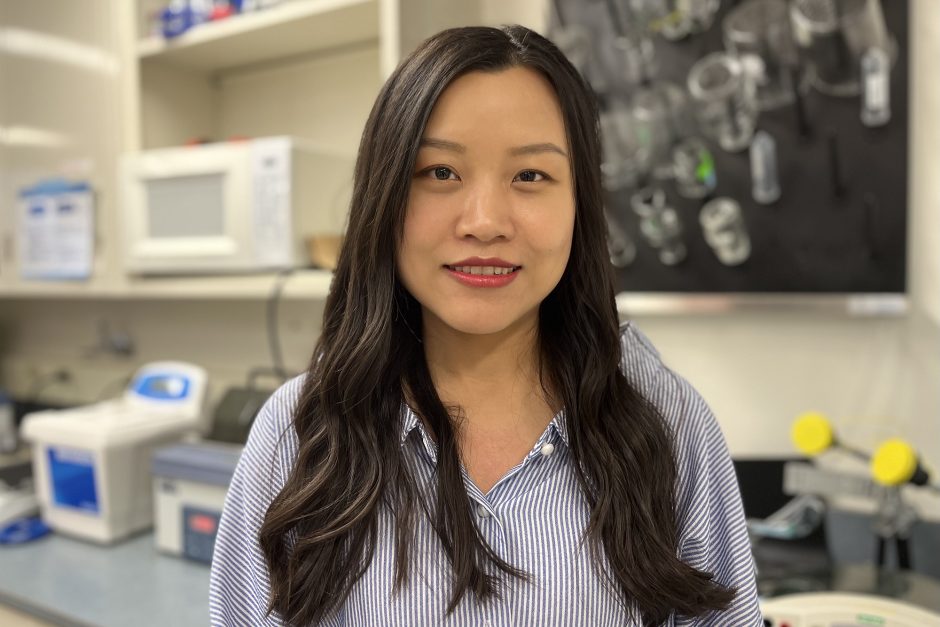
March. 1, 2023
Contact: Marcus Wilkins, wilkinsm@missouri.edu
Liping Zhang, a PhD candidate studying the relationship between diet and cardiovascular health, spends a good portion of her research considering cuisine. It’s a point of reference as she recalls her academic journey in her native China: aromatic Cantonese in Guangdong, where she earned her undergraduate degree; spicy Sichuan, the province where she earned her master’s.
It’s also Zhang’s lead topic in her presentation for 3MT, a competition in which graduate students present often complex research theses distilled to three-minutes. Zhang’s research, which she performs at the University of Missouri’s Dalton Cardiovascular Research Center, specifically focuses on the effects of the so-called Western diet on vascular stiffness — which can be an early predictor of heart disease.
Zhang will represent Mizzou when she delivers her presentation at the Midwestern Association of Graduate Schools 3MT Competition March 31, 2023, in Chicago.
Read on about Zhang, her research and her goals at MU and beyond.
Where did you grow up, and what led you down this academic path?
I grew up in Shanwei, China, about three hours from Hong Kong and surrounded by ocean. I did my master’s at Southwest Medical University in the city of Luzhou — one of China’s “spiciest cities” because of the food.
My current principal investigator, [Dalton Cardiovascular Research Center interim director] Michael Hill, collaborated often with my university, so I had the opportunity to visit Mizzou in 2018. After spending six months at Mizzou, I knew this was where I wanted to continue my academic path.
I am a first-generation college student. A lot of people think that for a Chinese girl to come to the United States for a doctorate degree that my parents must be highly educated. In fact, my parents came from poorer backgrounds, but they are very supportive of me pursuing my dream. The only thing they don’t like about it is that I’m so far away.
Why is this research important, and why is it interesting to you?
We know that a diet high in fat, salt and sugar increases the risk of heart disease. But that doesn’t mean that if I have a high fat meal today, I will have heart disease tomorrow. It’s a chronic process. I am focused on vascular stiffness, which is a good predictor of heart disease because healthy blood vessels are compliant and flexible.
When your body needs more blood, healthy vessels can get wider to allow more blood to the areas that need it (such as when you’re exercising). But when your vessels become stiffer, your heart needs to pump harder to deliver the blood, and gradually this could develop into heart diseases due to overwork.
What have you enjoyed about the 3MT competition?
Being among presenters from so many different fields, and in preparing for 3MT, I’ve realized people don’t want to know all the intricate details of your research. They need the most important parts — what aspects excite you.
The most important thing is to get through it in three minutes, but don’t make people feel like you’re rushing. When I first presented to faculty at Mizzou, they said that my content was great, but it felt hurried. They suggested I change my tone and cadence just a bit — up and down — so it’s smoother.
The original title of my presentation was not exciting: “Western diet, vascular stiffening and heart disease.” My friend joked, “I thought your presentation was going to be complicated, but even my mom could understand it.” So, I changed the title to “Yumyum says the mouth. Ouch ouch says the heart." I am so looking forward to presenting it at the regional 3MT competition.



